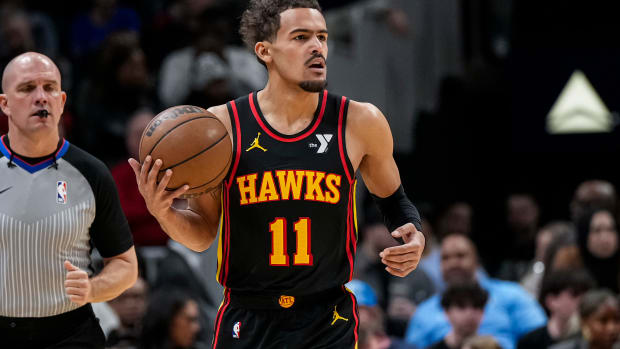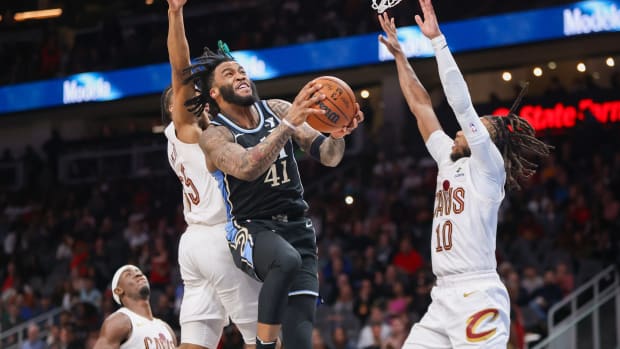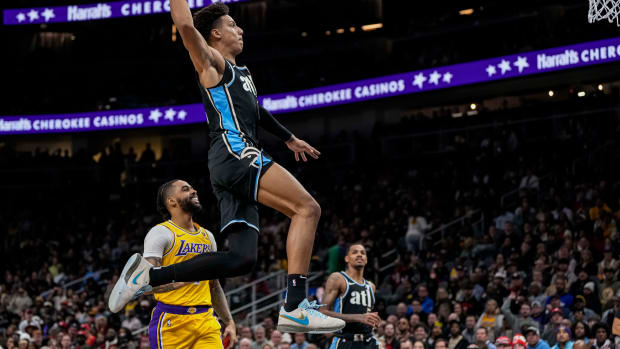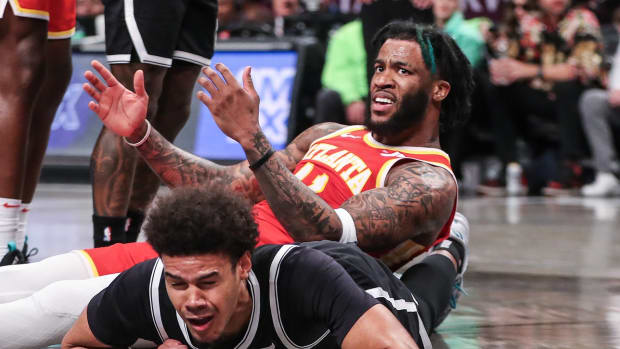Young's 49 Not Enough As Hawks Drop Overtime Slugfest
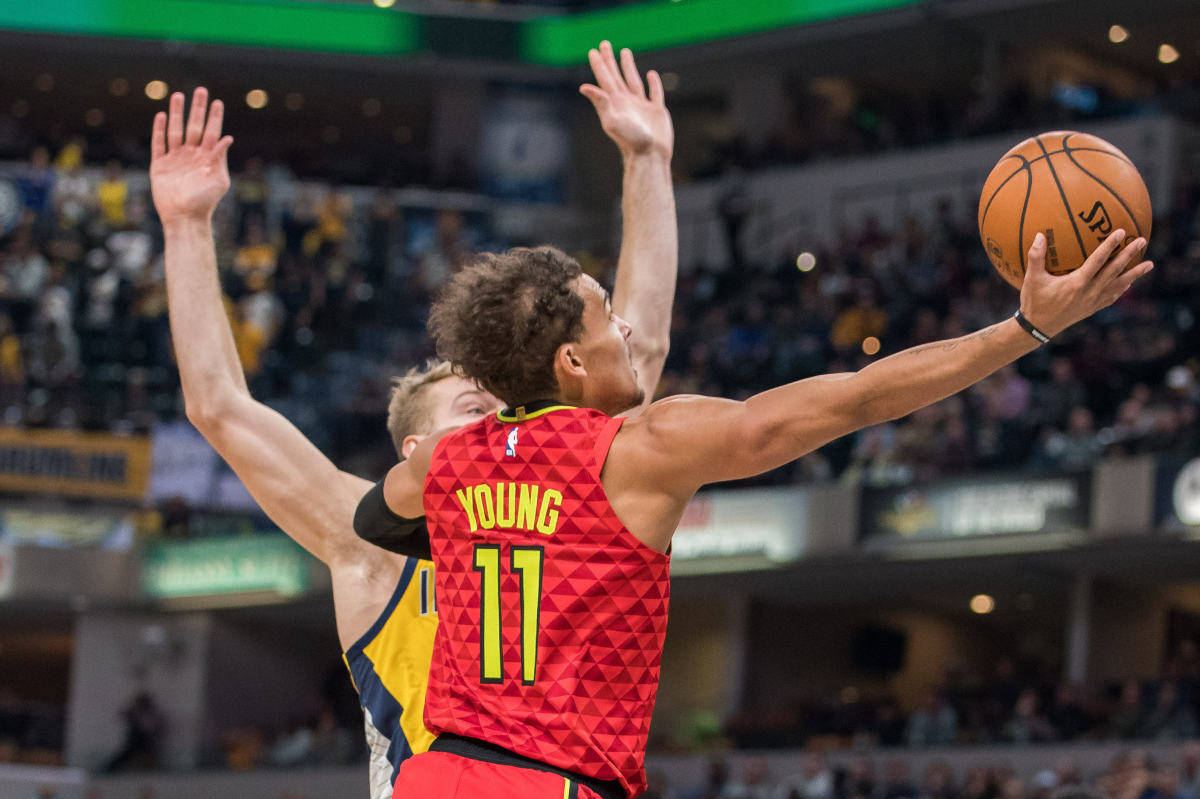
Friday night encapsulated Atlanta’s offensive struggles as well as any game has this season. Though Trae Young tied a career high with 49 points on 16-of-28 shooting – and 8-of-15 from 3 – the Hawks averaged under 0.96 points per possession and, more importantly, fell to the Pacers 105-104.
Atlanta has now lost an NBA-worst nine games in a row and is just 2-12 since John Collins was suspended 25 games earlier this month; the Hawks have not won a game since Kevin Huerter injured his shoulder on November 12. Absent two of its three most central players, Atlanta has astonishingly little offensive support around its point guard, and as a result, it wasted one of the best performances of Young’s career.
Exploding like he did is difficult under any circumstances, but doing it in the face of constant double-teams and a defense’s undivided attention makes it all the more remarkable. But even on incandescent nights like Friday, Young cannot do this alone. He hit more 3-pointers than the rest of the two teams combined, and while he had only six assists, there was little he could do about the fact that his teammates shot 36.5 percent from the field and 1-of-17 from 3.
That lack of ancillary firepower allowed Indiana to blitz Young as often as it wanted, which caused him to turn the ball over nine times. Some of his giveaways were the product of carelessness or being overly ambitious, but were someone else capable of setting up easy baskets, Young might not have so much responsibility on his shoulders.
Even without much firepower around their point guard, this was a game the Hawks could – and perhaps should – have won. They jumped on the Pacers early and extended their lead to 11 by halftime, but Indiana used its physicality to greater effect in the third quarter. It began to close driving lanes and attack the rim more forcefully, and Atlanta’s offense cratered when Young went to the bench late in the period. Young was the only Hawk to make a field goal in the third quarter, and while Atlanta ran some creative sets to manufacture open shots, it simply didn’t have the personnel to capitalize on those advantages. A 29-11 third-quarter onslaught by the Pacers could have been worse had Indiana been able to hit open shots.
As much as the Hawks’ lack of ancillary weapons hurt them, turnovers and free throws ultimately swung this game. Atlanta turned the ball over 24 times to Indiana’s 15 – due largely to Young’s own cough-ups – and the Pacers shot 21-of-28 from the foul line. When both teams shoot as poorly as these two did, those extra opportunities add up. Though the Hawks outshot the Pacers from the field and from 3 (and generally got better shots), Indiana created just enough of an edge on the margins to get by.
Defensively, Atlanta played one of its best games of the season. It benefitted from lucky opponent shooting, but still held the Pacers to a 51.2 expected effective field goal percentage, according to pbpstats.com’s tracking data. The typically spacy Jabari Parker held up reasonably well in the post against Domantas Sabonis and grabbed three steals in the process. DeAndre’ Bembry wreaked his usual havoc on that end. Young played one of his better defensive games of the season – even when he matched up against the stronger Malcolm Brogdon in pick-and-rolls or isolations. There will always be scenarios in which Young is simply too small or slow to make a difference, but Friday night he was active both on and off the ball and maintained good positioning as a help defender.
The Hawks, however, might not be able to count on that sort of effort from Young every night if he continues to carry as heavy an offensive load as he does now. A primary ball-handler who runs and changes direction as often as Young does can only give so much on the other end of the floor. Given how many minutes Atlanta needs Young to play, it simply isn’t realistic to expect positive two-way impact every single night. He could, amazingly, stand to improve after a 49-point outing. But the root of the Hawks’ trouble lies beyond Young’s control. Reinforcements are on the way, but Atlanta needed them to arrive long ago.


